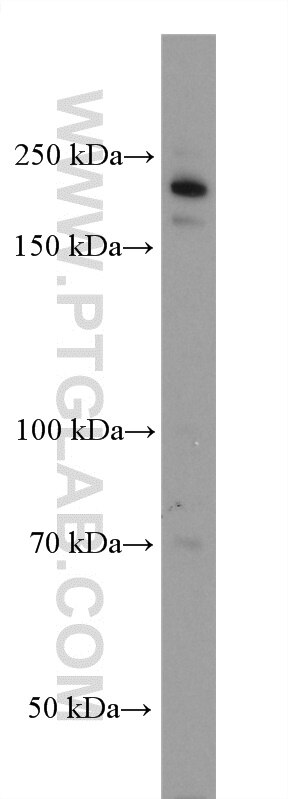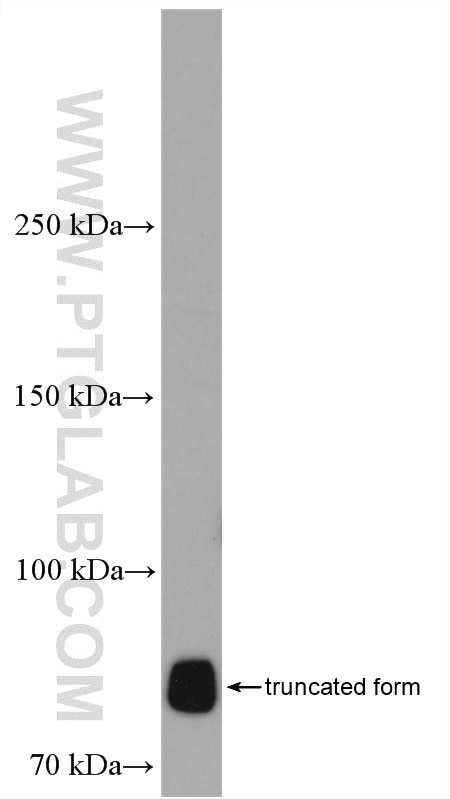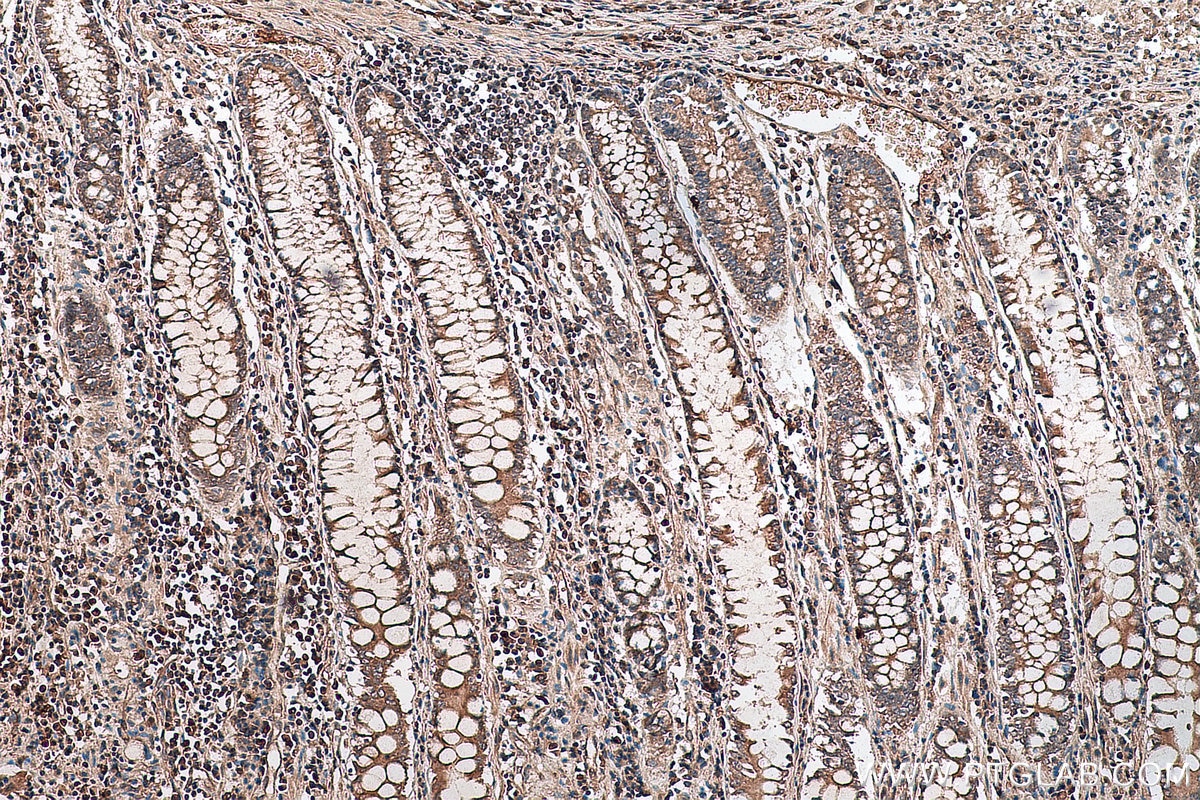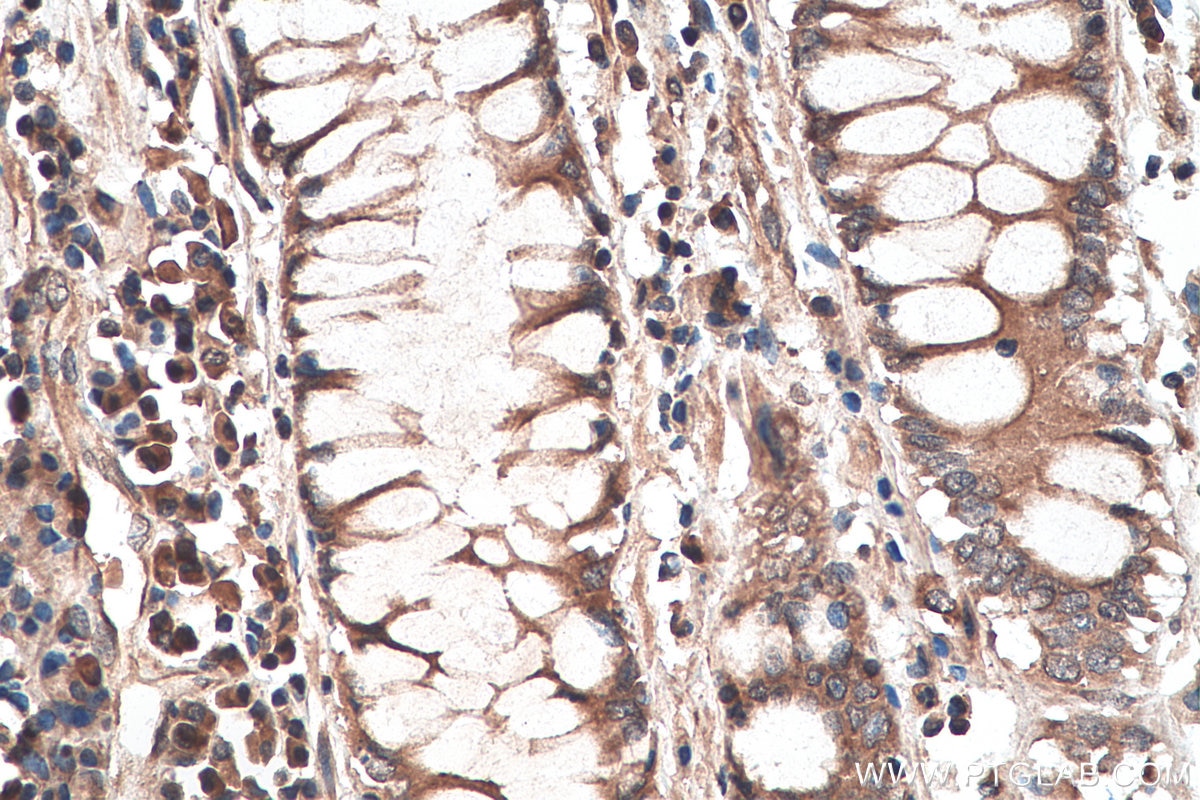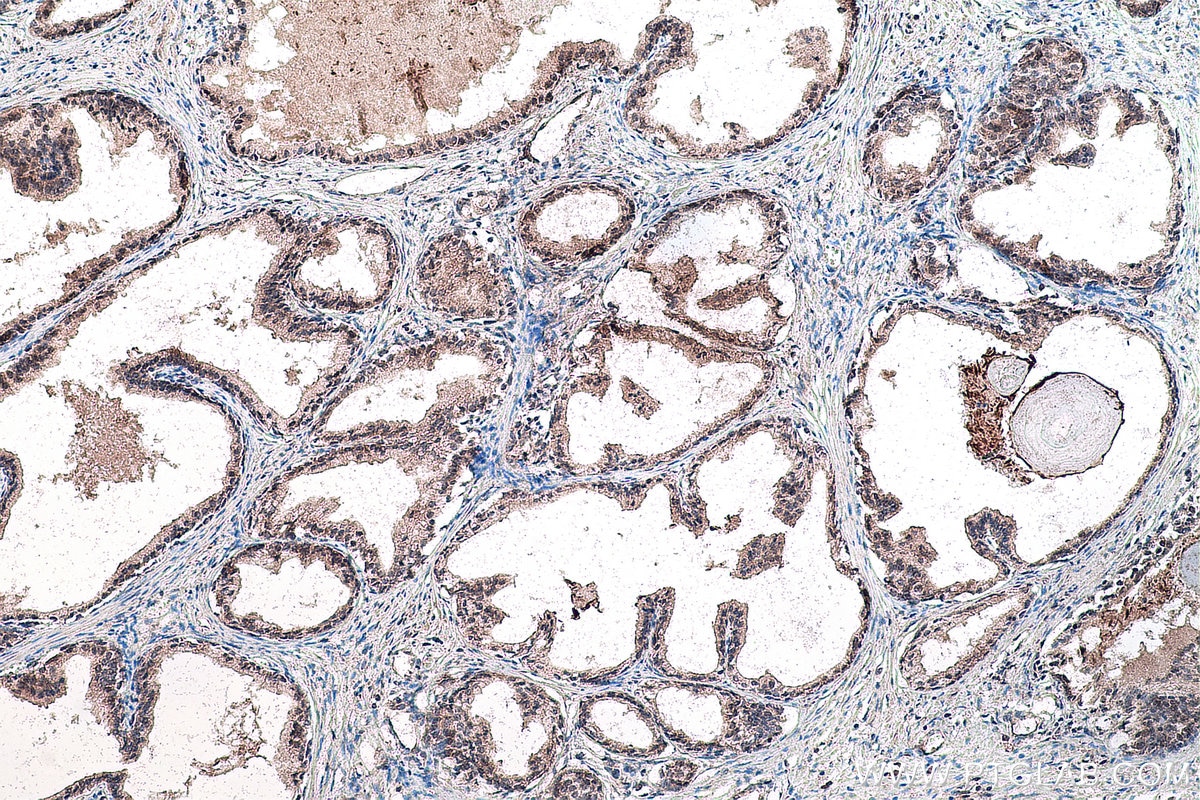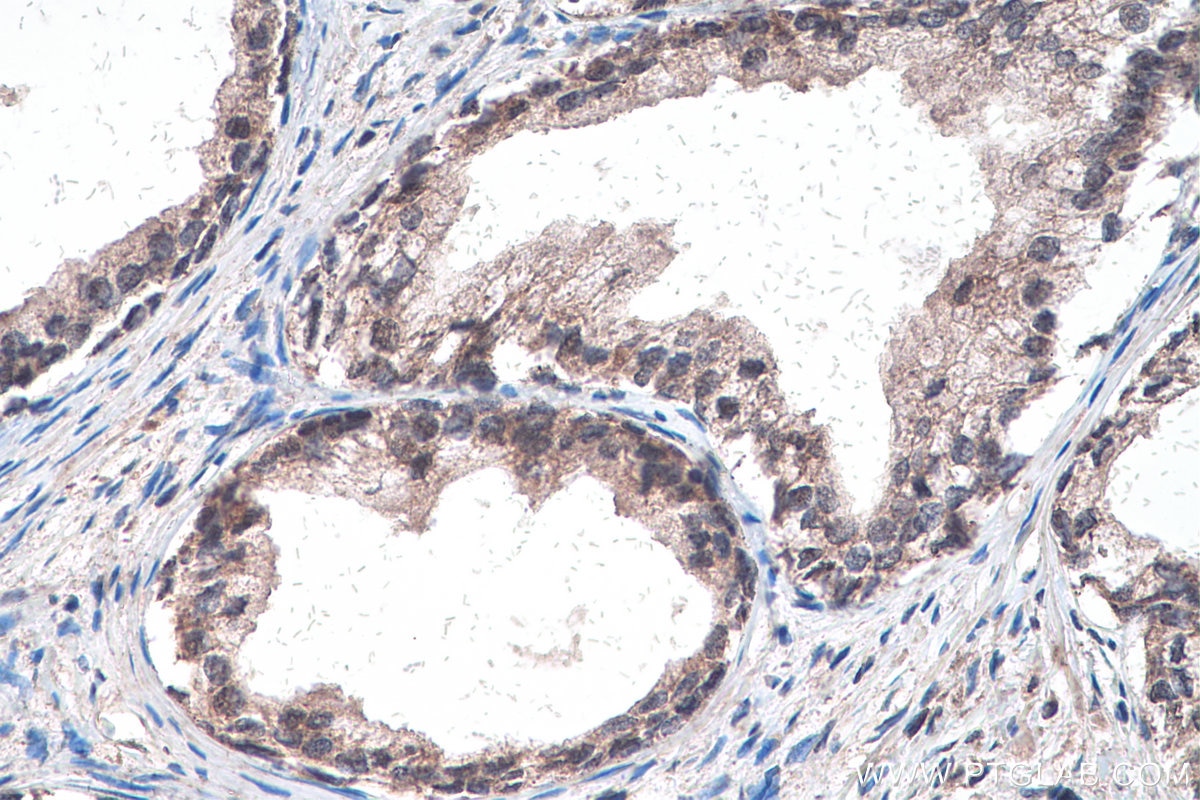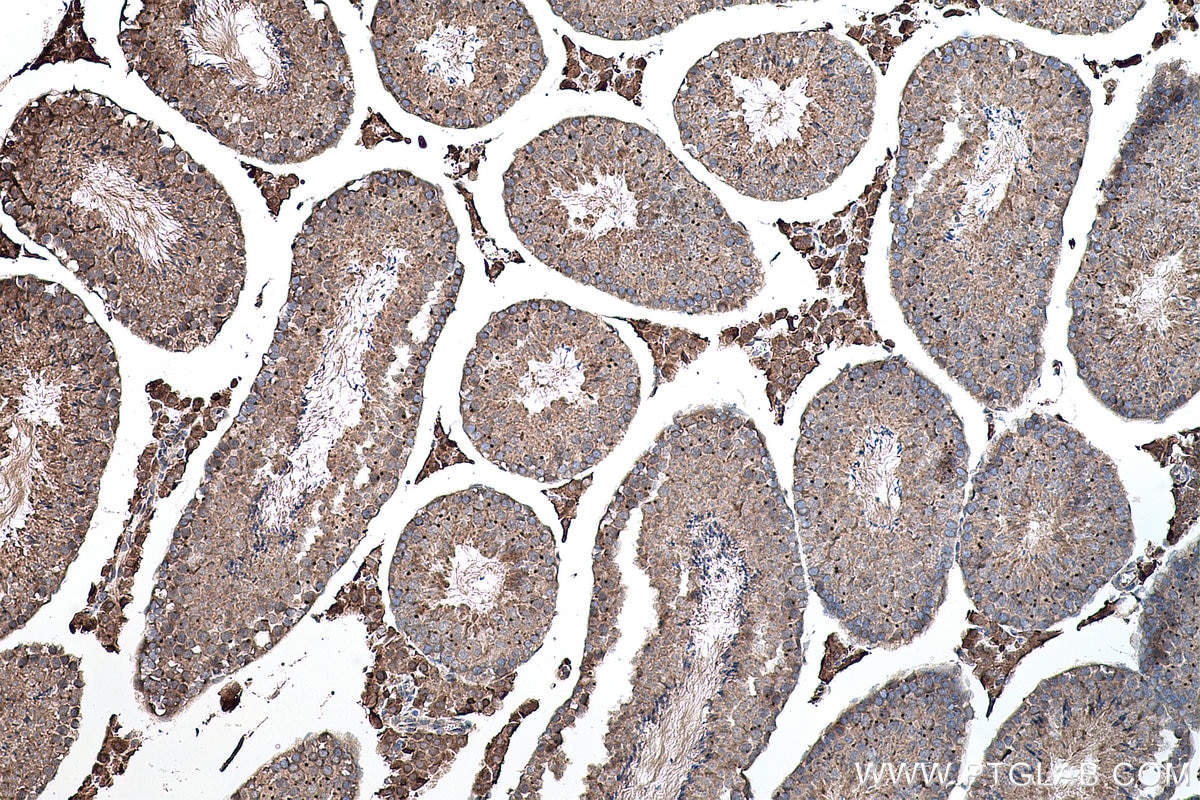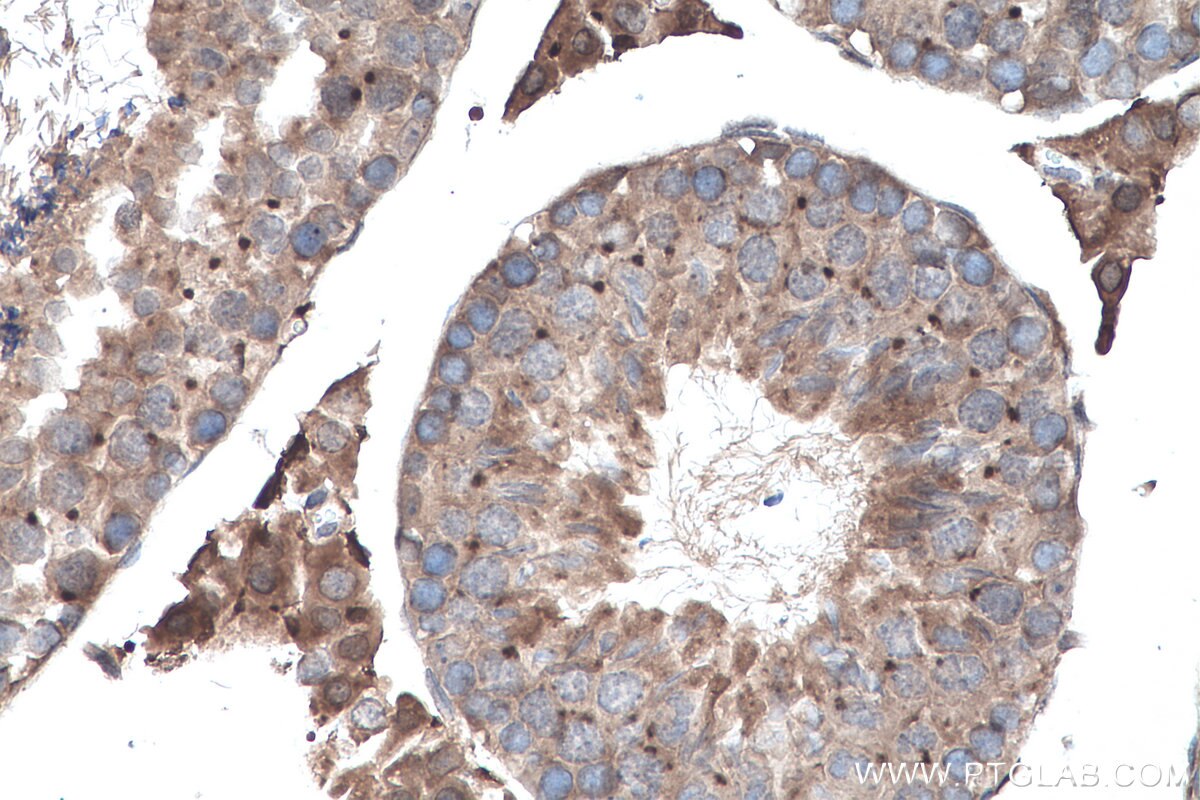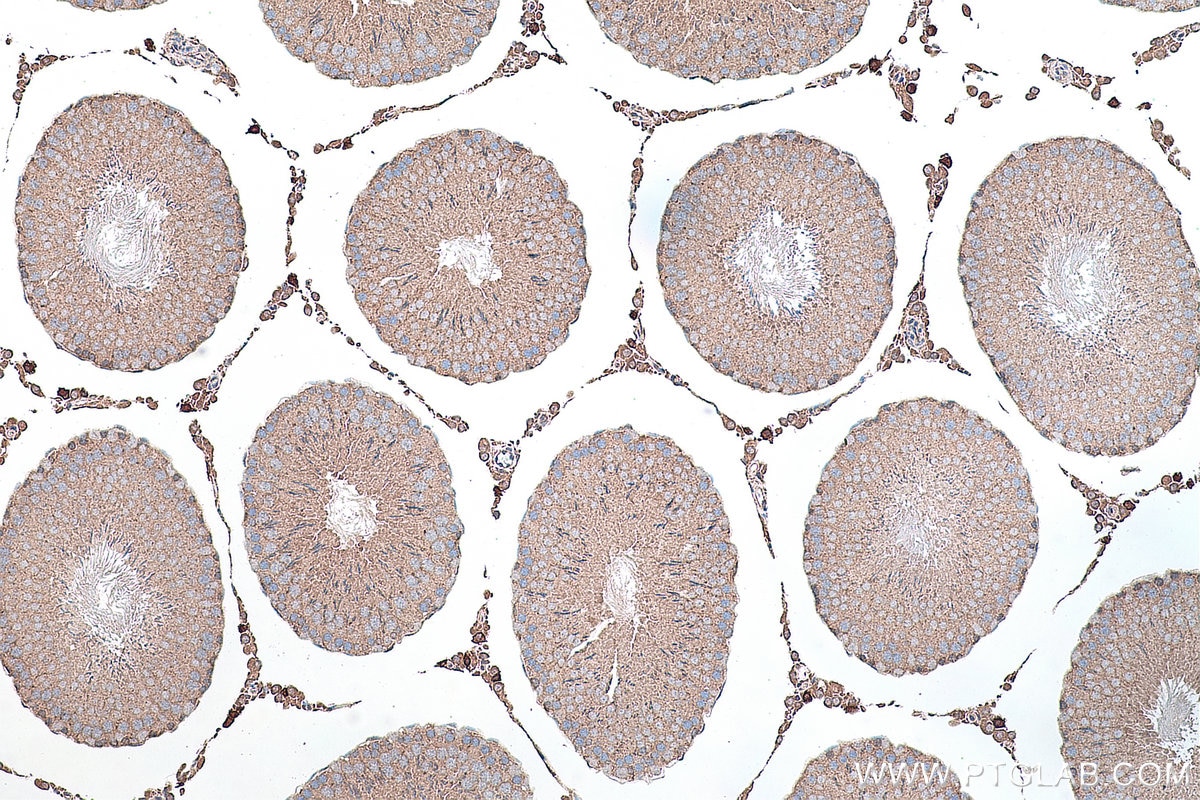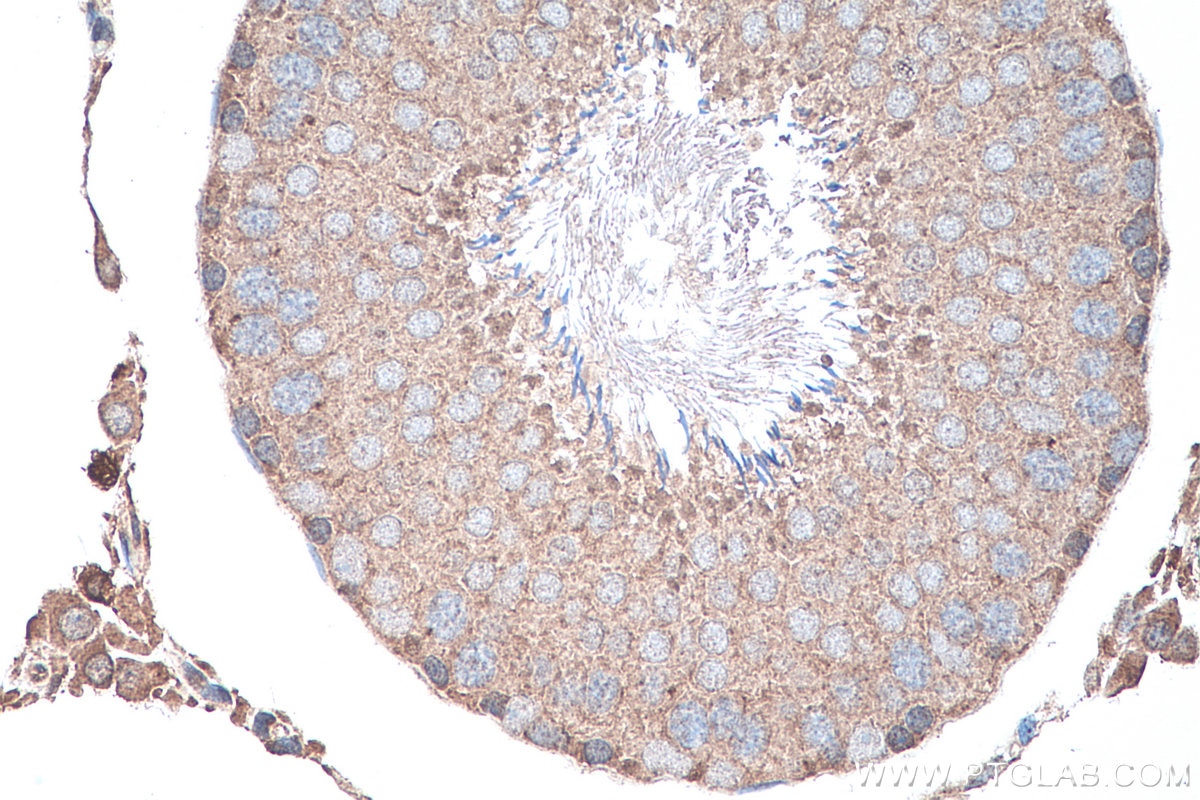Anticorps Polyclonal de lapin anti-GLI3
GLI3 Polyclonal Antibody for WB, ELISA
Hôte / Isotype
Lapin / IgG
Réactivité testée
Humain, rat, souris
Applications
WB, ELISA
Conjugaison
Non conjugué
N° de cat : 28272-1-AP
Synonymes
Galerie de données de validation
Applications testées
| Résultats positifs en WB | cellules HepG2, cellules SKOV-3 |
Dilution recommandée
| Application | Dilution |
|---|---|
| Western Blot (WB) | WB : 1:500-1:1000 |
| It is recommended that this reagent should be titrated in each testing system to obtain optimal results. | |
| Sample-dependent, check data in validation data gallery | |
Applications publiées
| WB | See 1 publications below |
Informations sur le produit
28272-1-AP cible GLI3 dans les applications de WB, ELISA et montre une réactivité avec des échantillons Humain, rat, souris
| Réactivité | Humain, rat, souris |
| Réactivité citée | rat |
| Hôte / Isotype | Lapin / IgG |
| Clonalité | Polyclonal |
| Type | Anticorps |
| Immunogène | GLI3 Protéine recombinante Ag28472 |
| Nom complet | GLI family zinc finger 3 |
| Masse moléculaire calculée | 170 aa |
| Poids moléculaire observé | 170-190 kDa, 80-90 kDa |
| Numéro d’acquisition GenBank | NM_000168 |
| Symbole du gène | GLI3 |
| Identification du gène (NCBI) | 2737 |
| Conjugaison | Non conjugué |
| Forme | Liquide |
| Méthode de purification | Purification par affinité contre l'antigène |
| Tampon de stockage | PBS avec azoture de sodium à 0,02 % et glycérol à 50 % pH 7,3 |
| Conditions de stockage | Stocker à -20°C. Stable pendant un an après l'expédition. L'aliquotage n'est pas nécessaire pour le stockage à -20oC Les 20ul contiennent 0,1% de BSA. |
Informations générales
GLI3 belongs to the GLI C2H2-type zinc-finger protein family. GLI3 plays a role in limb and brain development. GLI3 is implicated in the transduction of SHH signal. Defects in GLI3 are the cause of Greig cephalo-poly-syndactyly syndrome (GCPS). Defects in GLI3 are a cause of Pallister-Hall syndrome (PHS). Defects in GLI3 are a cause of type A1/B postaxial polydactyly (PAPA1/PAPB). Defects in GLI3 are a cause of type IV preaxial polydactyly. Defects in GLI3 are the cause of acrocallosal syndrome (ACS). The antibody is specific to GLI3. At the molecular level, Gli3 is translated into a 190-kDa transcriptional activator (Gli3-190) that undergoes proteolytic processing into a truncated 83-kDa repressor (Gli3-83) lacking C-terminal activation domains. (PMID: 16705181)
Protocole
| Product Specific Protocols | |
|---|---|
| WB protocol for GLI3 antibody 28272-1-AP | Download protocol |
| IHC protocol for GLI3 antibody 28272-1-AP | Download protocol |
| Standard Protocols | |
|---|---|
| Click here to view our Standard Protocols |
Publications
| Species | Application | Title |
|---|---|---|
Bioengineered All-trans-retinoic acid suppresses rat embryo hindlimb bud mesenchymal chondrogenesis by modulating HoxD9 expression |
